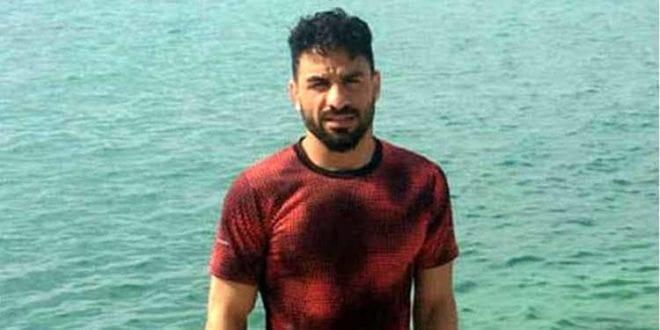Radiofarda – A group of independent United Nations human rights experts strongly condemned the execution of Navid Afkari in an Iranian prison on Saturday, following the champion wrestler’s controversial allegations of killing a security guard during anti-Islamic Republic protests in 2018.

“It is deeply disturbing that the authorities appear to have used the death penalty against an athlete as a warning to its population in a climate of increasing social unrest,” the experts said in a statement protesting Afkari’s killing and expressing their condolences to his family.
The statement is signed by several Special Rapporteurs on the situation of human rights in the Islamic Republic of Iran, Javaid Rehman; Special Rapporteur on extrajudicial, summary or arbitrary executions, Agnes Callamard; Special Rapporteur on Rights to Freedom of Peaceful Assembly and of Association, Clément Nyaletsossi Voule; Special Rapporteur on Torture and Other Cruel, Inhuman or Degrading Treatment or Punishment, Nils Melzer; and Special Rapporteur on the promotion and protection of the right to freedom of opinion and expression, Irene Khan.
Special Rapporteurs are appointed by the Geneva-based UN Human Rights Council to examine and report back on a specific human rights theme or a country’s situation.
“Such flagrant disregard for the right to life through summary executions is not only a matter of domestic concern,” the signatories wrote. “We call on the international community to react strongly to these actions by the Islamic Republic of Iran.”
Responding to Iranian authorities’ claims that Afkari had killed a security guard in the heat of anti-establishment protests in Shiraz, the UN human rights experts inquired, “If Afkari was guilty of murder, why was the trial conducted behind closed doors and through the use of forced confessions extracted under torture? The execution of Navid Afkari was summary and arbitrary, imposed following a process that did not meet even the most basic substantive or procedural fair trial standards, behind a smokescreen of a murder charge.”
The Islamic Republic’s Ministry of Intelligence and Judiciary had accused Afkari of killing Hassan Torkman, a secret security agent of the Islamic Revolution Guards Corps (IRGC) who was assigned to suppress the protesters.
Torkman’s body was officially buried as a “martyr” by the regime, signifying his position. During the widespread protests in 2018, Torkman was also working as a security guard for the Water and Sewage company (ABFA) of Shiraz
In a video posted on social media on August 30, the wrestler’s mother, Bahiyyeh Jilani, said that Navid and his two brothers, Habib and Vahid, had been brutally tortured into confessing against each other.
An Iranian “Revolutionary Court” sentenced Vahid to 54 years and six months in prison and seventy-four lashes, and Habib to 27 years and three months in jail and 74 lashes.
In a letter sent from prison, Navid Afkari explained that, in addition to beating him with batons and sticks, officers pulled a plastic bag over his head and held him “to the verge of suffocation and death.”
Furthermore, a few hours before the execution, Afkari disclosed in a phone call to one of his brothers that a forensic examiner had detected and registered ten to fifteen injured places on his body due to his beatings, which contradicted forensic officials’ earlier claims that Afkari was not harmed.
“Navid Afkari complained to the judiciary, claiming that officials had severely beaten his arms, legs, abdomen and back with sticks and batons; covered his head with a plastic bag to the brink of death; and poured alcohol into his nose, according to the press release issued by the UN human rights office,” the statement read.
The UN experts accused the Iranian judiciary of disregarding Afkari’s complaints, adding, “We are appalled at these serious allegations of torture that have not been investigated, broadcasting his forced confession by State television, and the use of closed and secret trials.”
“The course of events in Navid Afkari’s case raises serious doubts about the veracity of the basis for the murder charge against him,” they added in the statement. “The hastened secret execution, forced confession under torture as the sole evidence, closed trial, and the lack of respect for the domestic requirements for reconciliation and the denial of the last family visit suggest that there was an attempt by the authorities to expedite his execution.”
The broadcast of Afkari’s “forced confessions” on Iranian state-run television, ignoring his complaints about being tortured, as well as authorities’ “failure to comply with domestic law [indicate] that judicial authorities intended to expedite his execution.”
On September 5, Iran’s state-run television broadcast a program titled “Confessions” containing Afkari’s allegedly-forced admission of guilt, with the film failing to include even one frame related to the time of the murder.
The UN rights experts pointed out that Afkari’s execution was the second in connection to protests over the last two months, which, together with the alarming frequency of death penalty sentences handed to protesters, “raises concerns about the authorities’ future response to protests and any expression of opposition or dissenting opinion.”
 Shabtabnews In this dark night, I have lost my way – Arise from a corner, oh you the star of guidance.
Shabtabnews In this dark night, I have lost my way – Arise from a corner, oh you the star of guidance.



